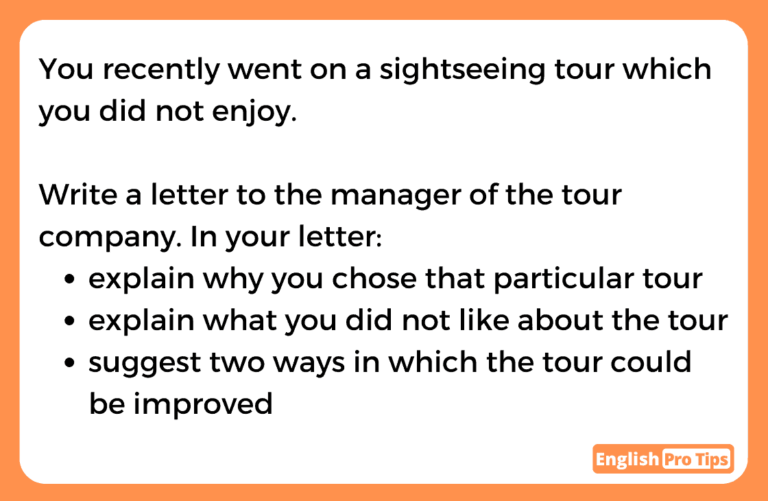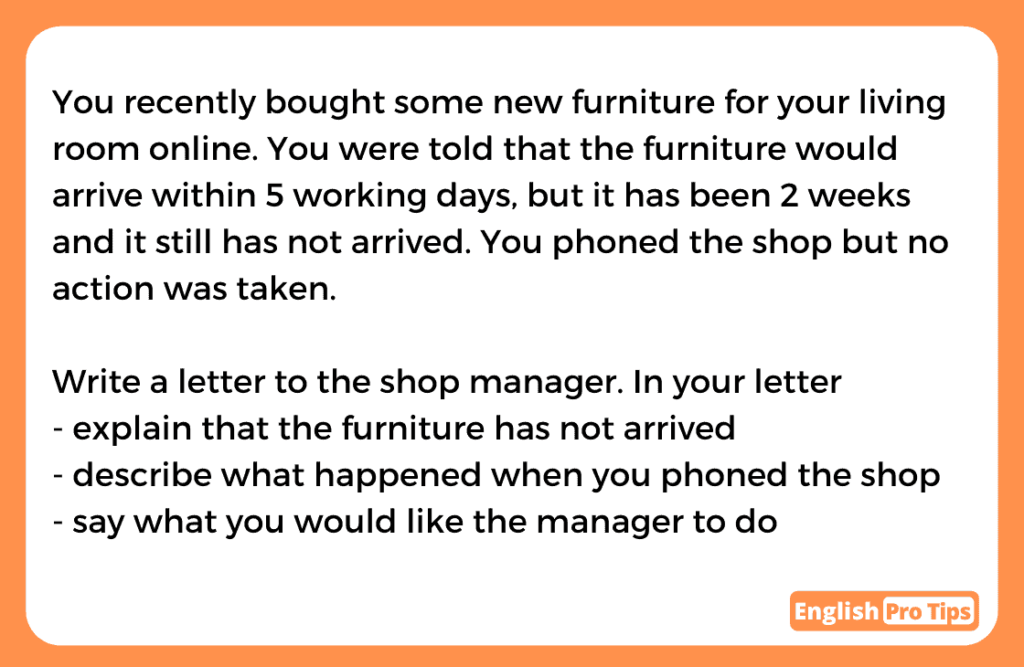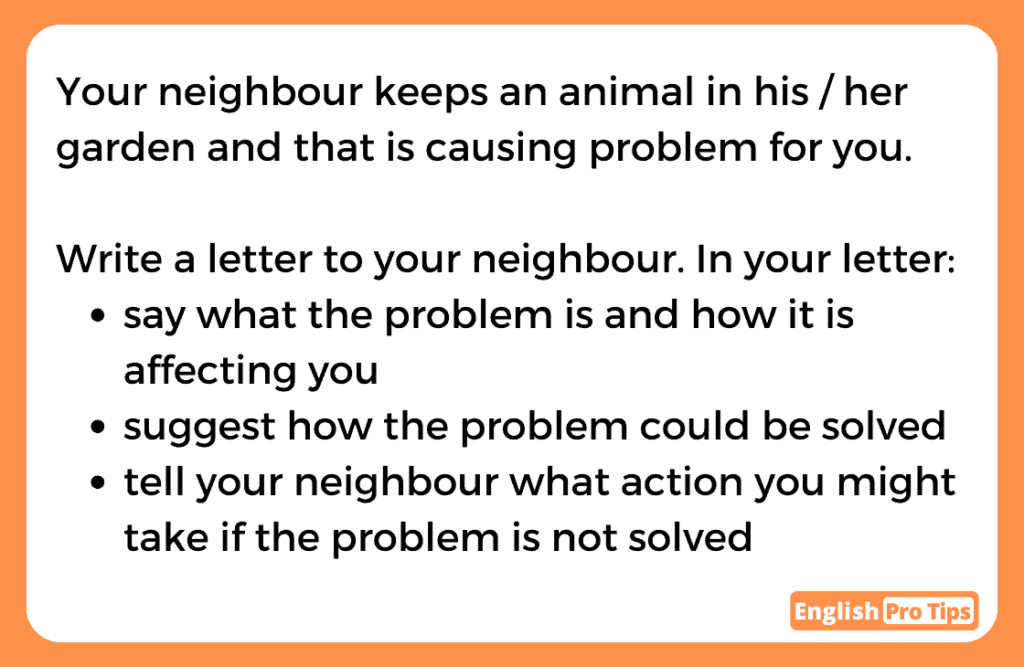Examiner Comments
The letter clearly communicates the purpose, which is to provide feedback on a river tour and suggest improvements.
The language used is formal and maintains a polite tone throughout, suitable for a feedback letter.
The writer uses considerate language, acknowledging the discomfort felt and suggesting solutions rather than merely criticizing.
The letter is well-constructed, articulating concerns and suggestions in a clear and respectful manner.
The letter follows a clear structure with an introduction, detailing the issue, providing suggestions, and a polite conclusion.
The ideas are logically presented, starting with the problem, offering suggestions for improvement, and ending with a polite request.
The letter ends with a polite closing statement and a formal signature.
This letter contains a wide range of appropriate vocabulary which is used accurately and naturally and demonstrates a sophisticated control of language. There are no spelling errors.
Some examples of advanced vocabulary are:
To see them for myself: …I became curious to see them for myself.
Intrusion into their private lives: I am not confident that they are properly compensated or happy with this intrusion into their private lives.
To confirm my suspicions: Indeed, we encountered a number of unsmiling faces which seemed to confirm my suspicions.
To take part in: why not employ the villagers to take part in the tours themselves?
Ask their permission: Why not ask their permission to include their houses on your tours and allow them to profit from it?
This letter uses a very wide range of both complex and simple appropriate grammar structures which help to convey ideas with clarity and precision.
- Present perfect: I have been in the country for a month.
- Noun clause: I discovered that the houses were constructed on stilts…..
- Parallel structure: Why not employ the villagers to take part in the tours themselves? They could steer the boats, provide commentary and sell some of the beautiful crafts that they make….
Useful Vocabulary
“Take part in” means to join or be involved in something.
I am writing to give you some feedback after taking part in your group river tour to the floating villages on the Mekong River.
“Unique” means one-of-a-kind or unlike anything else.
I have been in the country for a month and over that time I kept hearing people talk about the unique floating villages with houses built on stilts, and I became curious to see them for myself.
“Stilts” are long poles or supports that raise a person or object off the ground.
I have been in the country for a month and over that time I kept hearing people talk about the unique floating villages with houses built on stilts, and I became curious to see them for myself.
“Curious” means wanting to know or learn something.
I have been in the country for a month and over that time I kept hearing people talk about the unique floating villages with houses built on stilts, and I became curious to see them for myself.
“Uneasy” means feeling worried, uncomfortable, or not at ease about a situation or circumstance.
However, although the adventure was certainly unique, I felt uneasy when the boat stopped on numerous occasions as we were encouraged to look closely at individual houses.
“Intrusion” means entering where not allowed or wanted.
…I am not confident that they are properly compensated or happy with this intrusion into their private lives.
“Private life” means personal matters and relationships kept away from the public eye.
…I am not confident that they are properly compensated or happy with this intrusion into their private lives.
“To confirm suspicions” means to provide evidence or proof that what one suspected or believed is true. It means verifying or validating one’s doubts or beliefs.
Indeed, we encountered a number of unsmiling faces which seemed to confirm my suspicions.
“Consequently” means as a result or therefore; it indicates that one thing follows logically or naturally from another.
Consequently, I have two suggestions for improvement.
“Yours faithfully” is a formal closing used in letters, typically followed by a signature. It is commonly used when the recipient’s name is not known or not addressed in the letter.
Yours faithfully,




